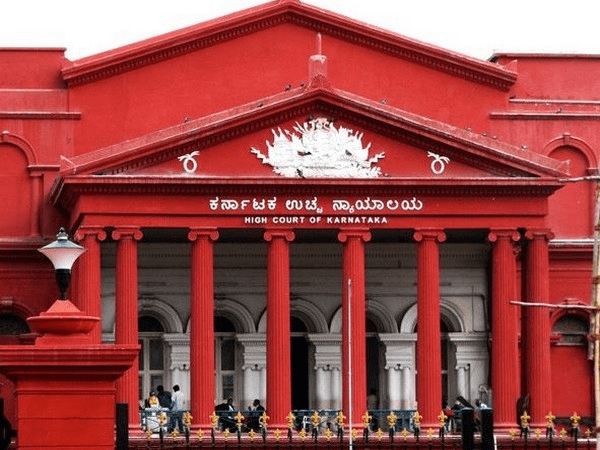The Karnataka High Court dismissed a Public Interest Litigation (PIL) filed seeking quashing the implementation of project construction of Elevated Corridor for Decongestion to traffic at Rani Chennamma Circle in Hubli City/Taluka in the State of Karnataka on Engineering, Procurement and Construction (EPC) mode.
The Counsel for the petitioners vehemently argued that the project in question if accomplished as designed would be “highly inconvenient” to the public since it would increase the traffic congestion; the whole project militates against the provisions of Indian Road Congress; the minimum required standards such as 30 metres Turning Radius, 25 metres Safe Stopping Site Distance, 2 metres Cycle Tracks, minimum width Foot Paths of 1.8 metres, minimum 7 metres breadth of Service Road, etc., would remain non-compliant. He draws our attention to the elaborate pleadings taken up in this regard. He seeks for the voiding of the Project in question.
A Counter Affidavit has been filed by Regional Officer, Ministry of Road Transport and Highways, Government of India refuting the petition averments.
Having heard the counsel for the parties and having perused the petition papers, the division bench of Chief Justice Prasanna B Varale and Justice Krishna S Dixit declined indulgence in the matter inasmuch as the construction project in question essentially relates to the domain of Executive which will have the advantage of technology, feasibility and finance; courts by their very nature are illsuited in deciding those factors, if called upon.
The Apex Court in INDIRA NEHRU GANDHI vs. RAJNARAIN, (1975) 2 SCC 159 has identified the doctrine of separation of powers being an essential feature of our Constitution and therefore each of the State Organs has to show deference to the decisions of the other, unless breach of binding Rule of Conduct is demonstrated. Learned DSG is right in contending that the Judiciary cannot substitute its decisions for those of the Executive in matters like this, by their very nature.
“It hardly needs to be stated that the population is growing exponentially and that growth has been posing several challenges to the Administration, one of them being in the realm of Traffic, Transport & Commutation. What construction project, where should be undertaken and what all factors the execution of such projects should involve, are all matters in respect of which courts cannot undertake a deeper examination of the details. As already observed, they are ordinarily beyond the pale of judicial scrutiny, subject to all just exceptions into which argued case of the petitioners does not fit into. Added to this, the accomplishment of the project in question is already half way through as is reflected from the Executive Engineer’s Report titled as “Updated physical and financial progress of Hubli elevated corridor as on 20th September, 2023.”
The vehement submission of counsel for the petitioners that the project as envisioned does not serve the avowed object does not much impress the Court and reasons for this are not far too seek: Firstly, the Court cannot ignore the fact that the estimated cost of project in question is Rs.1,96,99,00,000-00 and such a huge project is finalized at the higher level of the Executive with all the expertise duly employed in framing it.
It is not the case of petitioners that naïve personnel have finalized the project with no expertise in the field. Merely because some of the petitioners too have expertise in the matter arguably, they cannot arrogate to themselves all the wisdom & expertise and thereby brand the project in question as being unwise and not feasible. Even otherwise, those are not the grounds of judicial review. The report of the Executive Engineer demonstrates that as on 20.09.2023, the physical progress has happened to the extent of 43.55% and the State has incurred an expenditure of Rs.81,28,83,522-00 which works out to 41.27% of the financial outlay. The Apex Court in T.N.GODAVARMAN THIRUMULPAD vs. UOI, (2022) 4 SCC 289 at paragraph 19.1 has observed as under:
“The project involves a huge capital expenditure and stoppage of construction activities and consequent delay in completion of the project would involve heavy financial implications owing to cost escalation, which would have a cascading effect on public exchequer”.
The High Court interference at this stage of the construction would be prejudicial to the public interest and State Exchequer, as observed by the Apex Court.
The submission of counsel for the appellants that the project is being undertaken contrary to the prescription of the Indian Road Congress Code, is legally untenable; the Code is not shown to have been promulgated under any particular statute.
The Apex Court in STATE OF MYSORE vs. FERNANDEZ, AIR 1967 SC 1753 has observed that the provisions of Karnataka PWD Code is nothing more than a compilation of Executive Instructions and that their breach does not give a justiceable cause of action. What applies to PWD Code would equally apply to the Indian Road Congress Code.
At this stage respondents submitted that all the norms obtaining in the field would be scrupulously followed and no room would be given for the complaint of their violation. It is also open to the petitioners to bring to the notice of the concerned if there is any violation so that the appropriate remedial measures are taken for ensuring compliance. “We have no reason to doubt this assurance”, said the Court.


